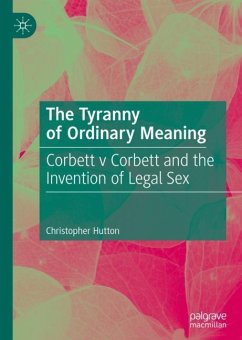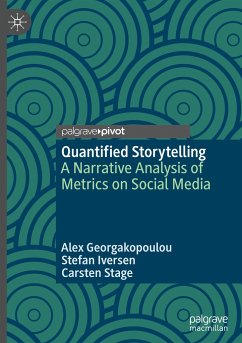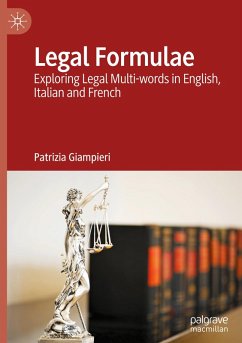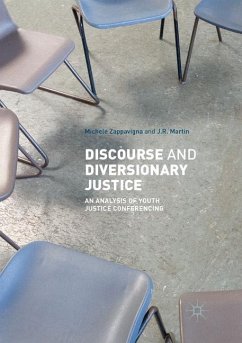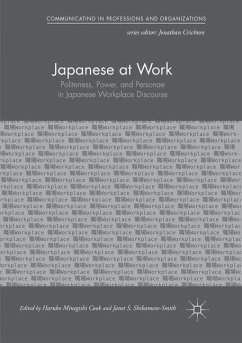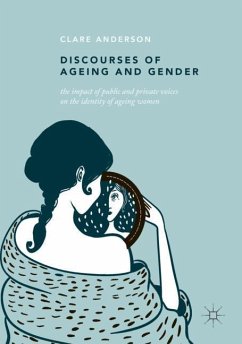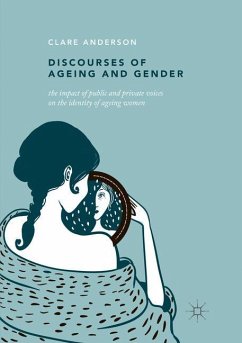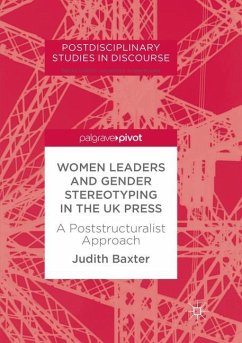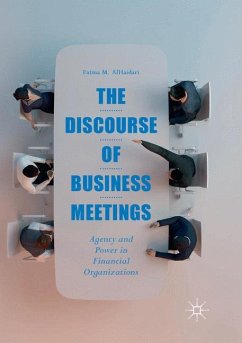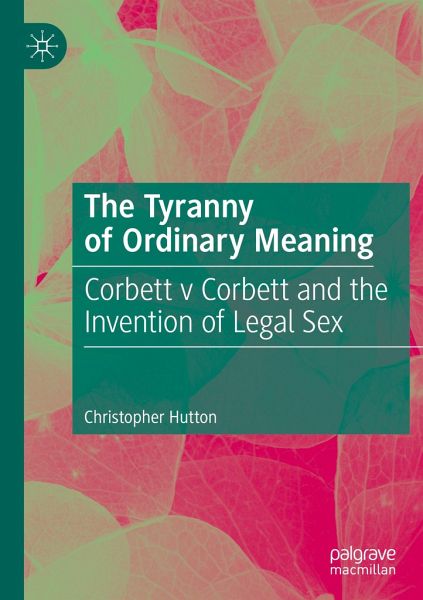
The Tyranny of Ordinary Meaning
Corbett v Corbett and the Invention of Legal Sex
Versandkostenfrei!
Versandfertig in 6-10 Tagen
38,99 €
inkl. MwSt.
Weitere Ausgaben:

PAYBACK Punkte
19 °P sammeln!
This book offers an in-depth analysis of the case of Corbett v Corbett, a landmark in terms of law's engagement with sexual identity, marriage, and transgender rights. The judgement was handed down in 1970, but the decision has shaped decades of debate about the law's control and recognition of non-normative gender identities. The decision in this case - that the marriage between the Hon. Arthur Corbett and April Ashley was void on the grounds that April Ashley had been born male - has been profoundly influential across the common law world, and came as a dramatic and intolerant intervention i...
This book offers an in-depth analysis of the case of Corbett v Corbett, a landmark in terms of law's engagement with sexual identity, marriage, and transgender rights. The judgement was handed down in 1970, but the decision has shaped decades of debate about the law's control and recognition of non-normative gender identities. The decision in this case - that the marriage between the Hon. Arthur Corbett and April Ashley was void on the grounds that April Ashley had been born male - has been profoundly influential across the common law world, and came as a dramatic and intolerant intervention in developing discussions about the relationships between medicine, law, questions of sex versus gender, and personal identity. The case raises fundamental questions concerning law in its historical and intellectual context, in particular relating to the centrality of ordinary language for legal interpretation, and this book will be of interest to students and scholars of language and law, legal history, gender and sexuality.





